Class 10 Exam > Class 10 Notes > Chemistry for GCSE/IGCSE > Naming of Organic Compounds
Naming of Organic Compounds | Chemistry for GCSE/IGCSE - Class 10 PDF Download
Naming Organic Compounds
- The names of organic compounds consist of two parts: the prefix (or stem) and the end part (or suffix).
- The prefix indicates the number of carbon atoms present in the longest continuous chain in the compound.
- The suffix indicates the functional group present in the compound.
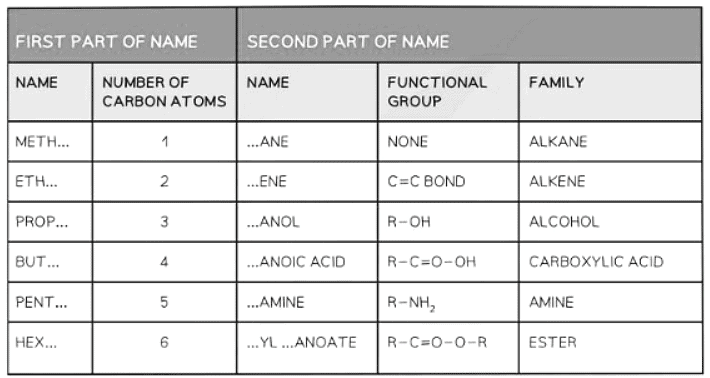
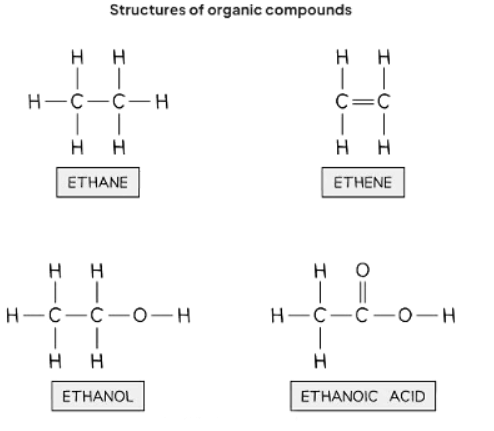
Further Naming of Organic Compounds
- When there are multiple carbon atoms where a functional group can be located, it is crucial to identify the specific carbon hosting the functional group.
- Each carbon atom is assigned a number to indicate the position of the functional group.
- For instance, consider Propan-1-ol, an alcohol with an -OH functional group. The '1' in the name specifies that the -OH group is attached to the first carbon atom.
- It is important to note that sometimes numbering should commence from the right to maintain lower numbers in chemical names.
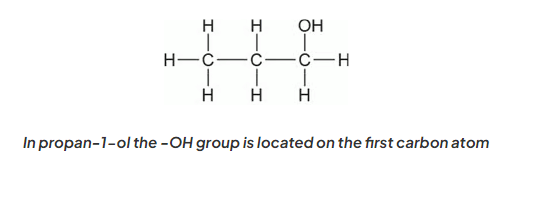
Question for Naming of Organic CompoundsTry yourself: What does the prefix in the name of an organic compound indicate?View Solution
Alkanes
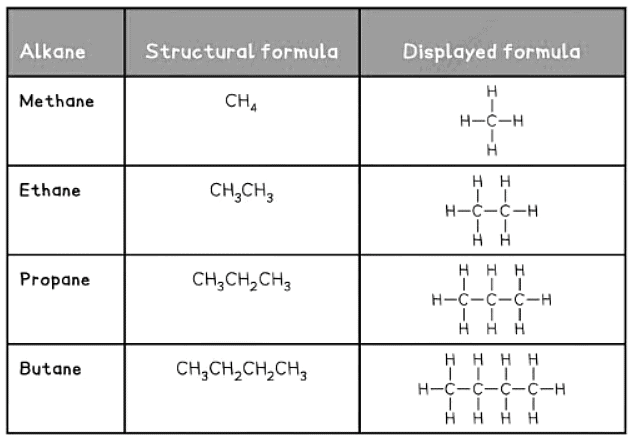
Alkenes
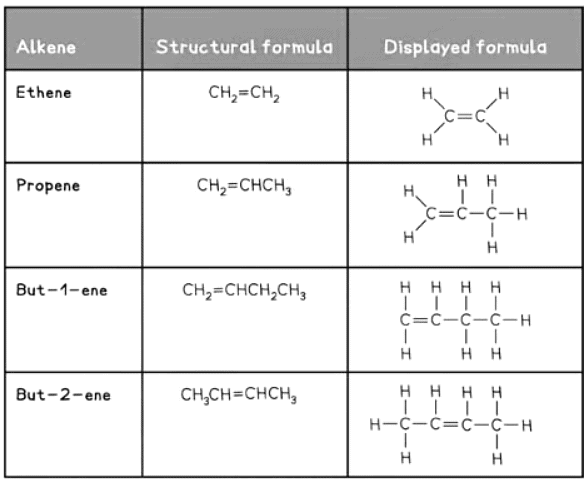
Alcohols
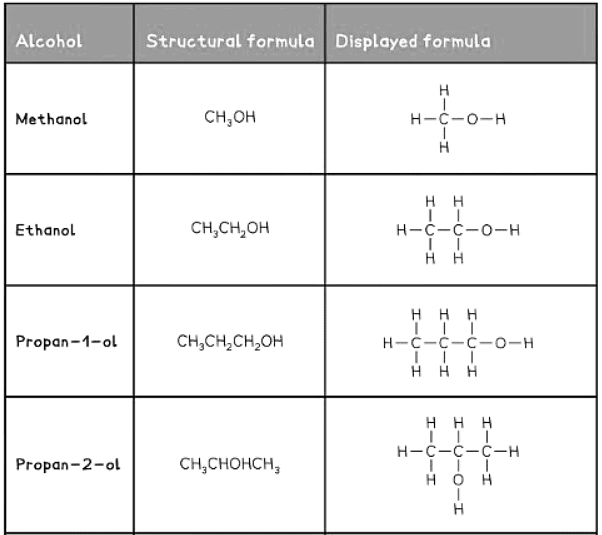
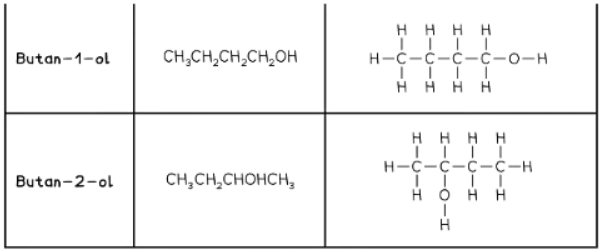
Carboxylic acids
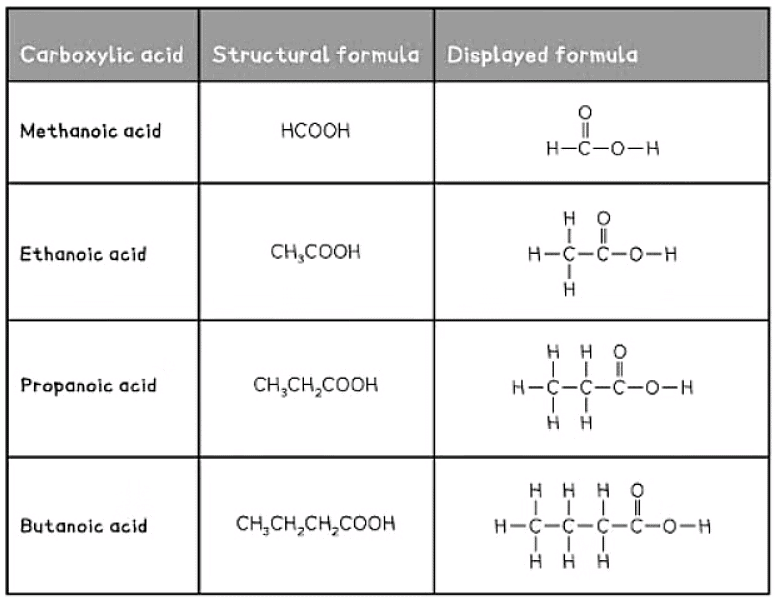
Esters
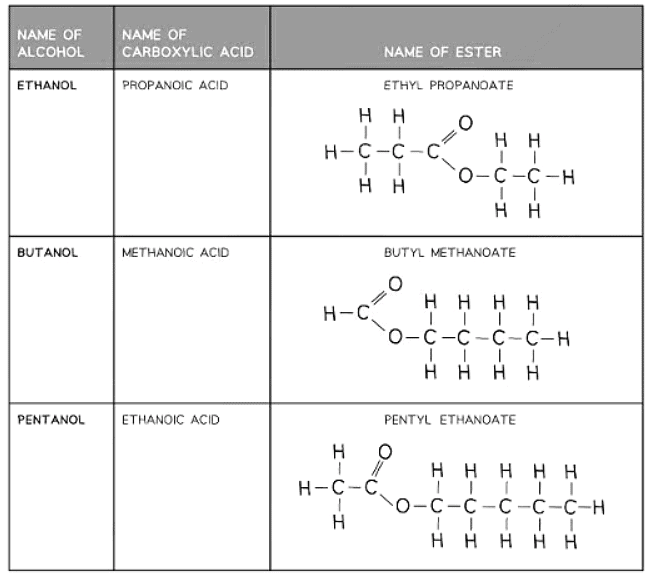
The document Naming of Organic Compounds | Chemistry for GCSE/IGCSE - Class 10 is a part of the Class 10 Course Chemistry for GCSE/IGCSE.
All you need of Class 10 at this link: Class 10
|
72 videos|162 docs|61 tests
|
FAQs on Naming of Organic Compounds - Chemistry for GCSE/IGCSE - Class 10
| 1. What is the general rule for naming organic compounds? |  |
Ans. The general rule for naming organic compounds is to use a systematic approach based on the IUPAC (International Union of Pure and Applied Chemistry) nomenclature system.
| 2. How do you determine the parent chain in organic compound naming? |  |
Ans. The parent chain in organic compound naming is determined by selecting the longest continuous chain of carbon atoms as the main chain, which may include any branches or substituents.
| 3. What is the purpose of using prefixes and suffixes in organic compound names? |  |
Ans. Prefixes and suffixes are used in organic compound names to indicate the type and position of functional groups, as well as to specify the number of carbon atoms in the main chain.
| 4. How do you name organic compounds with multiple functional groups? |  |
Ans. When naming organic compounds with multiple functional groups, the functional groups are numbered to give them the lowest possible locants, and the prefixes are listed in alphabetical order.
| 5. What are some common mistakes to avoid when naming organic compounds? |  |
Ans. Some common mistakes to avoid when naming organic compounds include not considering the priority of functional groups, neglecting to use correct prefixes and suffixes, and overlooking the correct numbering of carbon atoms in the main chain.
Related Searches
















